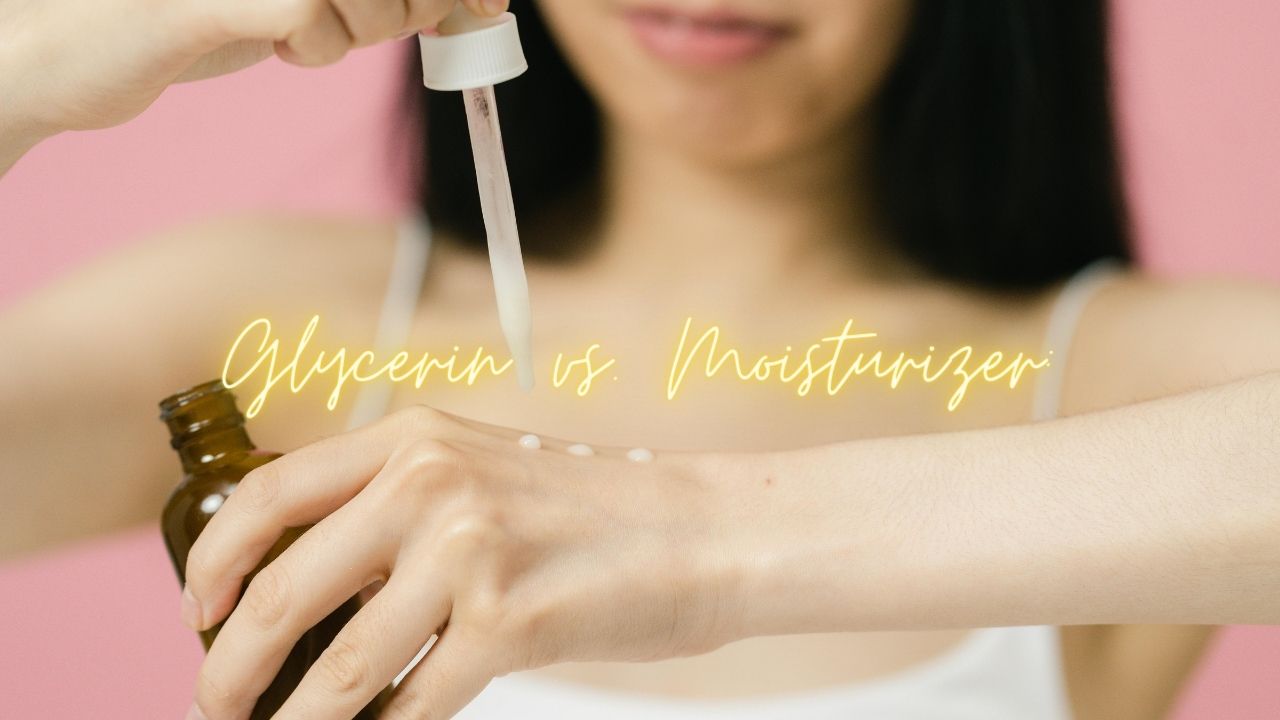The debate between glycerin and moisturizer often arises when it comes to skincare routines. Both glycerin and moisturizers play essential roles in hydrating and nourishing the skin, but they function differently and offer unique benefits. In this comprehensive guide, we’ll delve deep into the differences between glycerin and moisturizers, their effectiveness for various skin types, and how to choose the best option for your skin’s needs.
Understanding Glycerin and Moisturizers:
-
Glycerin:
- Glycerin, also known as glycerol, is a natural humectant that attracts moisture from the environment and retains it in the skin.
- It is widely used in skincare products for its hydrating properties and ability to improve skin elasticity.
- Glycerin is often found in various forms, including pure glycerin, glycerin-based serums, and glycerin-infused moisturizers.
-
Moisturizers:
- Moisturizers are skincare products formulated to hydrate and protect the skin by preventing water loss and maintaining a healthy moisture balance.
- They typically contain a combination of ingredients such as humectants (e.g., glycerin, hyaluronic acid), emollients (e.g., oils, butters), and occlusives (e.g., petrolatum, dimethicone) to provide hydration and lock in moisture.
- Moisturizers come in various textures, including creams, lotions, gels, and ointments, catering to different skin types and preferences.
Differences Between Glycerin and Moisturizers:
-
Hydration vs. Barrier Protection:
- Glycerin primarily focuses on hydration by attracting moisture to the skin and maintaining its moisture content.
- Moisturizers, on the other hand, not only hydrate but also provide a protective barrier on the skin’s surface to prevent moisture loss and shield against environmental stressors.
-
Texture and Application:
- Glycerin is often used as a standalone ingredient or incorporated into lightweight serums and toners, making it suitable for layering under moisturizers or other skincare products.
- Moisturizers come in various textures, from lightweight lotions for oily skin to rich creams for dry skin, offering versatility in application and addressing specific skin concerns.
-
Targeted Benefits:
- Glycerin is renowned for its ability to hydrate and soothe the skin, making it ideal for individuals with dry, sensitive, or dehydrated skin.
- Moisturizers, depending on their formulation, can offer additional benefits such as anti-aging properties, acne control, or sun protection, catering to a wide range of skin needs.
Choosing the Best Option for Your Skin:
-
Dry or Dehydrated Skin:
- If you have dry or dehydrated skin, incorporating products with glycerin, such as hydrating serums or glycerin-infused moisturizers, can help replenish moisture and improve skin texture.
-
Oily or Combination Skin:
- Individuals with oily or combination skin can benefit from lightweight moisturizers that contain a balance of humectants and non-comedogenic ingredients to hydrate without clogging pores.
-
Sensitive or Irritated Skin:
- Glycerin-based products are generally well-tolerated by sensitive skin types due to their gentle and hydrating nature. Look for products with minimal additives and fragrance.
-
Anti-Aging Concerns:
- Moisturizers with additional anti-aging ingredients such as retinol, peptides, or antioxidants can help target fine lines, wrinkles, and overall skin rejuvenation, complementing the hydrating effects of glycerin.
-
Sun Protection:
- For daytime skincare routines, consider using a moisturizer with built-in SPF to protect your skin from harmful UV rays while maintaining hydration.
Incorporating Glycerin and Moisturizers into Your Skincare Routine:
-
Morning Routine:
- Start your day with a gentle cleanser followed by a hydrating toner or serum containing glycerin to prep your skin.
- Apply a moisturizer suited to your skin type, ensuring it provides adequate hydration and sun protection if needed.
-
Evening Routine:
- Remove makeup and cleanse your skin to eliminate impurities and prepare it for nighttime renewal.
- Consider using a richer moisturizer or night cream with hydrating ingredients to nourish your skin while you sleep.
-
Weekly Treatments:
- Incorporate weekly treatments such as hydrating masks or serums enriched with glycerin to give your skin an extra boost of hydration and rejuvenation.
-
Consistency and Observation:
- Consistency is key in skincare routines. Monitor how your skin responds to glycerin-based products and moisturizers, adjusting the frequency or formulations as needed.
- Pay attention to changes in skin texture, hydration levels, and any signs of irritation or sensitivity, and consult a dermatologist if necessary.
Conclusion:
Both glycerin and moisturizers play vital roles in maintaining healthy, hydrated skin. While glycerin focuses on attracting and retaining moisture, moisturizers offer a comprehensive approach by hydrating, protecting, and addressing specific skin concerns. The key lies in understanding your skin type, identifying its needs, and choosing products that suit your preferences and goals. Whether you opt for glycerin-based serums, moisturizers tailored to your skin type, or a combination of both, a well-rounded skincare routine will help you achieve a radiant and nourished complexion.
